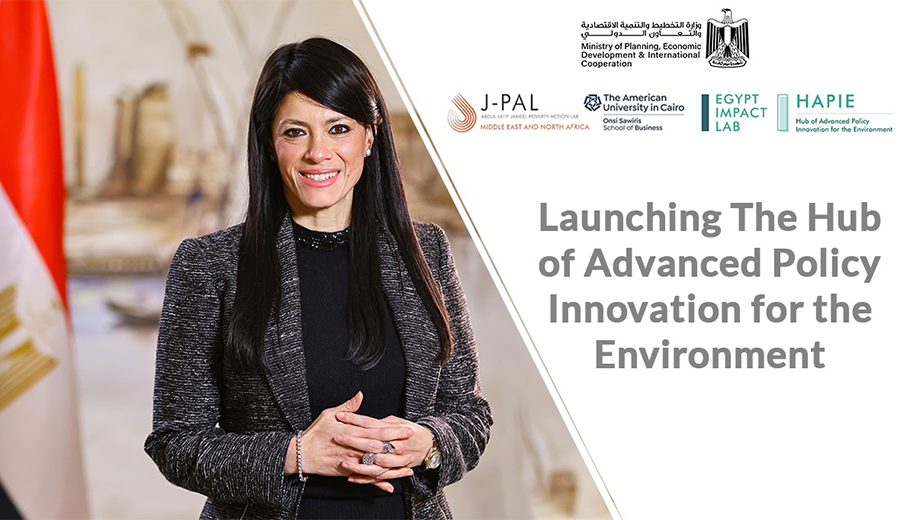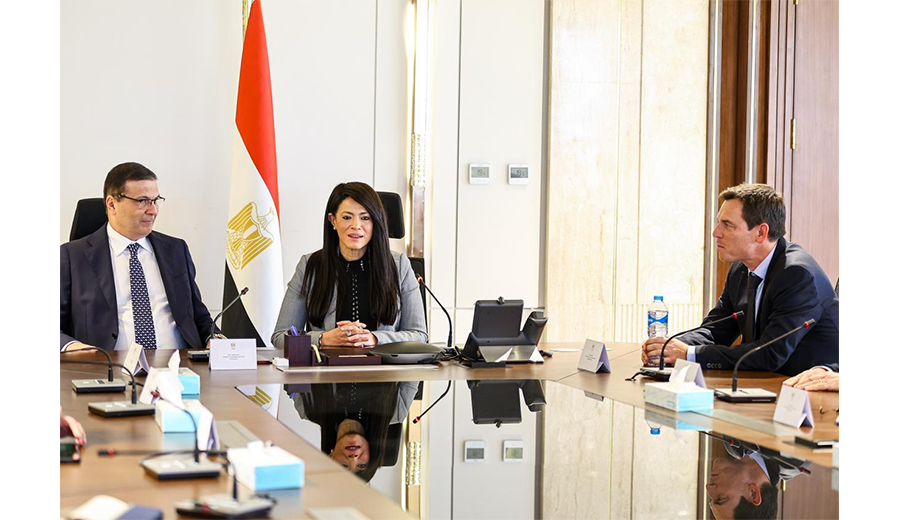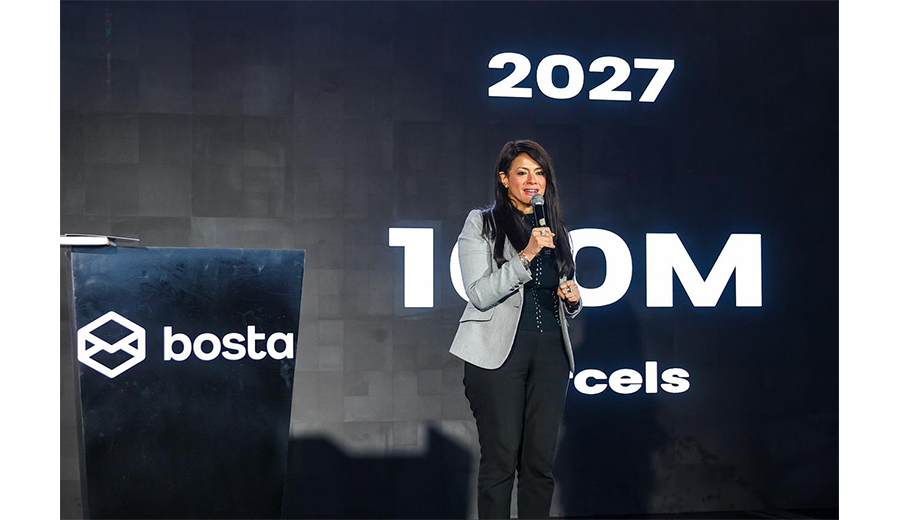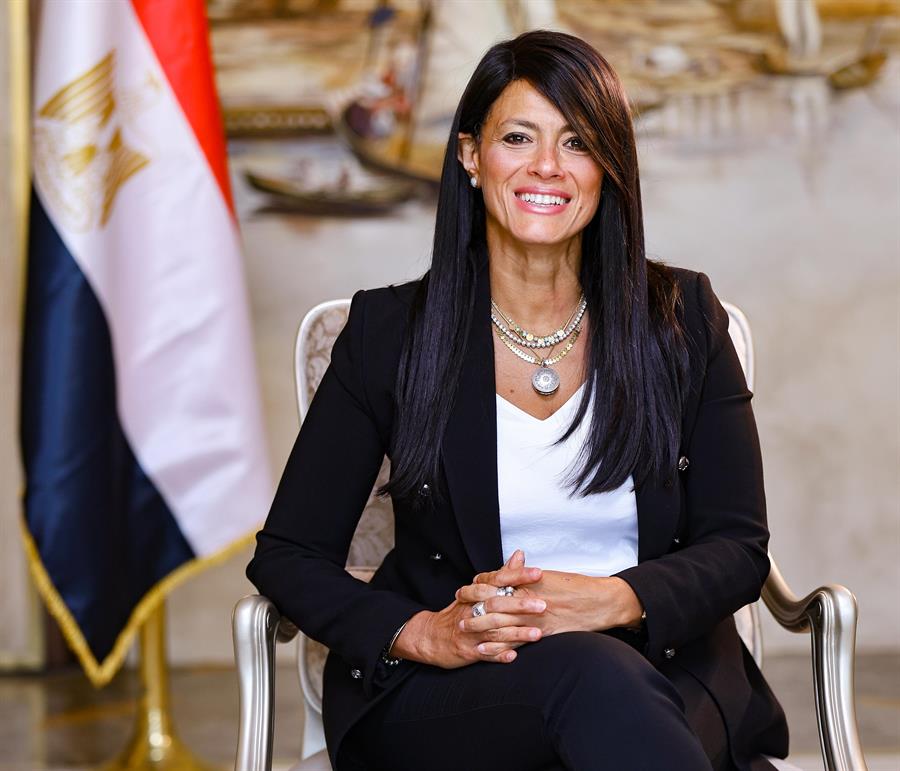Minister of Planning, Economic Development, and International Cooperation Witnesses the Launch of the Hub of Advanced Policy Innovation for the Environmental "HAPIE"

18 February 2025
In partnership with the Ministry of Planning, Economic Development, and International Cooperation and the Abdul Latif Jameel Poverty Action Lab in Cairo:
Minister of Planning, Economic Development, and International Cooperation Witnesses the Launch of the Hub of Advanced Policy Innovation for the Environmental "HAPIE"
H.E. Dr. Rania A. Al-Mashat, Minister of Planning, Economic
Development, and International Cooperation, attended the launch event of the
Hub of Advanced Policy Innovation for the Environmental "HAPIE",
aimed at improving access to clean air and pure water.
This hub represents an extension of the Egyptian Impact Lab,
which was created in partnership with the Abdul Latif Jameel Poverty Action Lab
for the Middle East and North Africa at the American University in Cairo and
the Ministry of Planning, Economic Development, and International Cooperation.
During the opening, H.E. Dr. Rania Al-Mashat noted that the
launch of this new initiative underscores Egypt’s commitment to evidence-based
policymaking, sustainable development, and climate action.
H.E. Minister Al-Mashat emphasized that the Ministry
believes that transformational change must be based on data-driven policies,
strategic partnerships, and innovative financing mechanisms. In an era
characterized by global challenges such as economic uncertainty, climate
change, and social inequality.
H.E. Dr. Al-Mashat highlighted the importance of ensuring
growth is not only quantitative but also qualitative, inclusive, and
sustainable.
H.E. Dr. Al-Mashat further reviewed the Ministry's vision
for economic development, which is based on three main pillars: formulating
data- and evidence-based policies to guide strategic decision-making across key
sectors, building a future-ready economy through macroeconomic stability,
structural reforms, and a just transition to a green economy, and improving
resource allocation by mobilizing both domestic and international financing
through Egypt's Integrated National Financing Strategy for Development (E-INFS),
launched in partnership with the United Nations.
H.E. Dr. Al-Mashat added that these initiatives represent a
tangible step toward a more climate-resilient, economically vibrant, and
socially inclusive future, reflecting Egypt’s leadership in global climate
action and demonstrating how integrated solutions can drive systemic change at
both national and regional levels.
H.E. Minister Al-Mashat affirmed Egypt's enhanced leadership
in regional and global climate action. She referred to Egypt’s hosting of COP27
in Sharm El-Sheikh and its active participation in the international climate
agenda, which demonstrated how developing countries can lead in climate-smart
policymaking, unlock climate finance, and implement sustainable reforms.
H.E. Dr. Al-Mashat outlined that at COP27, Egypt represented
the Global South, ensuring that Africa and other developing nations were at the
core of climate negotiations. She pointed to the establishment of the Loss and
Damage Fund, one of the main achievements and a critical step in providing
financial support to vulnerable countries facing climate-related disasters. One
of the key outcomes of COP27 was the launch of the "NWFE" program
platform, which addresses the nexus between water, food, and energy. This platform
represents a pioneering model that redefines climate finance by linking
development needs with innovative financing mechanisms, serving as a state-led
model for transforming policies into action through securing high-impact
investments aligned with Egypt's Nationally Determined Contributions (NDCs).
Through "NWFE," integrated projects are being
implemented, including ensuring water security through sustainable resource
management and infrastructure investments, supporting food security through
enhancing agricultural resilience and smart resource use, and accelerating the
transition to clean energy by expanding renewable energy projects and
optimizing energy consumption.
It is worth mentioning that "HAPIE" is an extension of the Egyptian Impact Lab in the sectors of environment, energy, and climate change. The Egyptian Impact Lab, which was established through a partnership between the Abdul Latif Jameel Poverty Action Lab for the Middle East and North Africa at the American University in Cairo and the Ministry of Planning, Economic Development, and International Cooperation, had a vital role in establishing evidence-based policymaking across various development sectors in Egypt. "HAPIE" will serve as a platform for collaboration, bringing together experts, practitioners, and decision-makers to innovate solutions that shape the future of sustainable development in Egypt and beyond.









